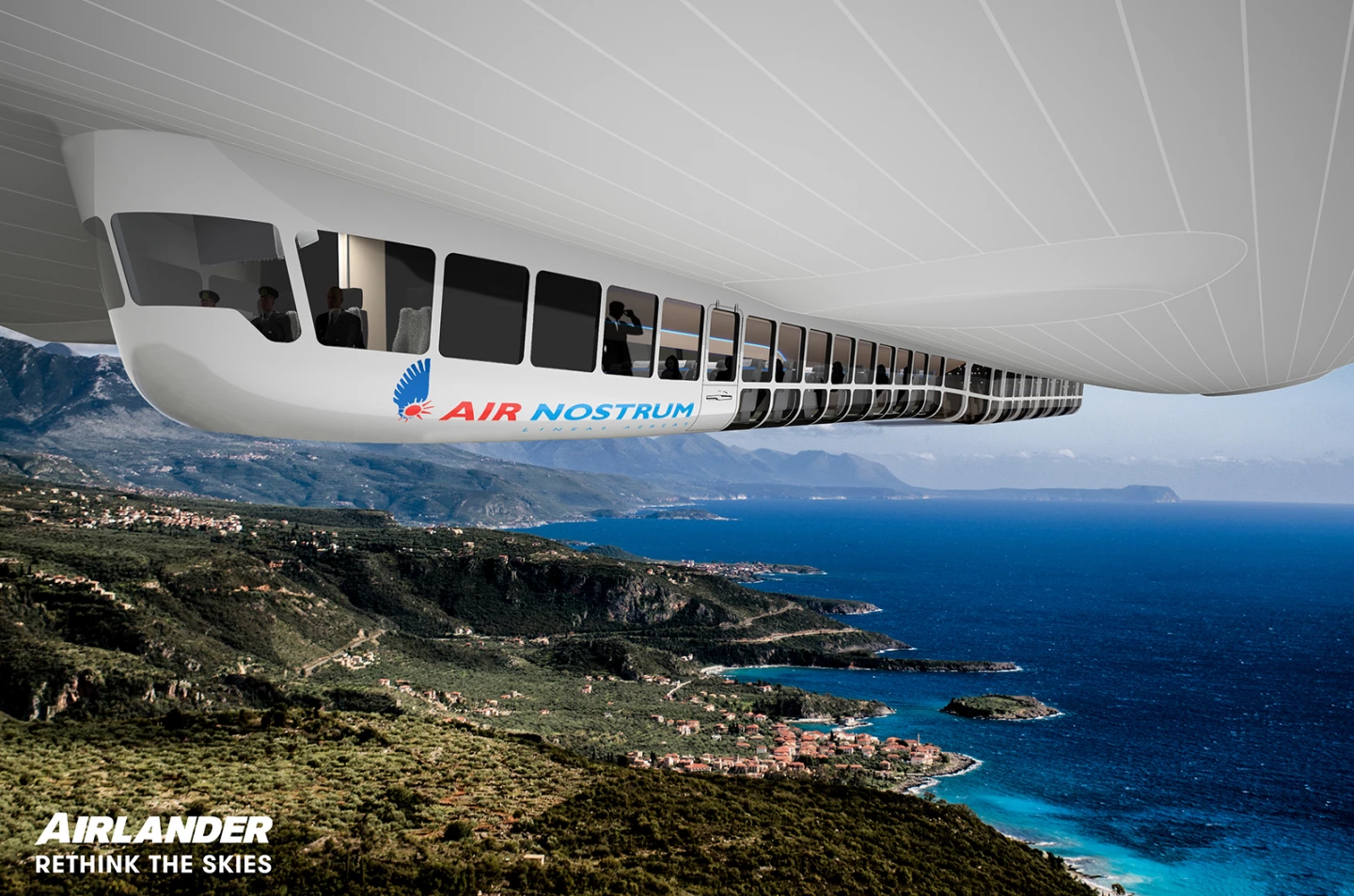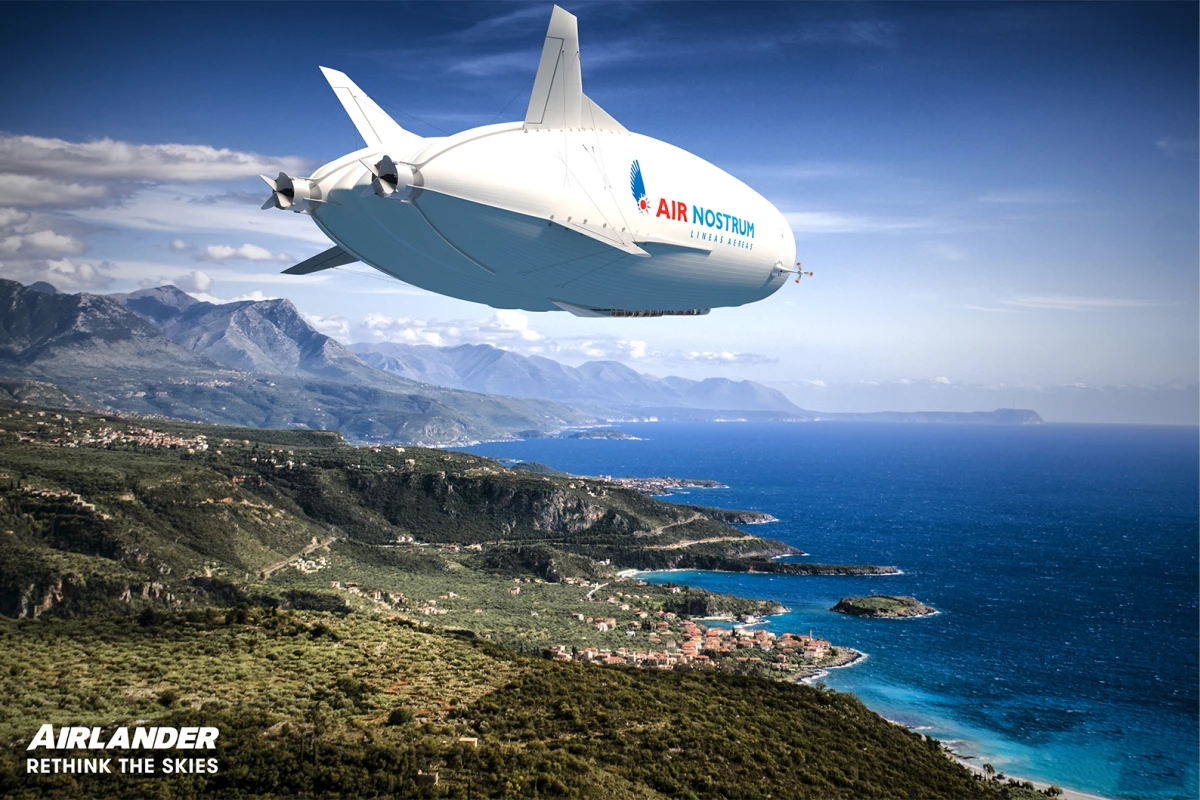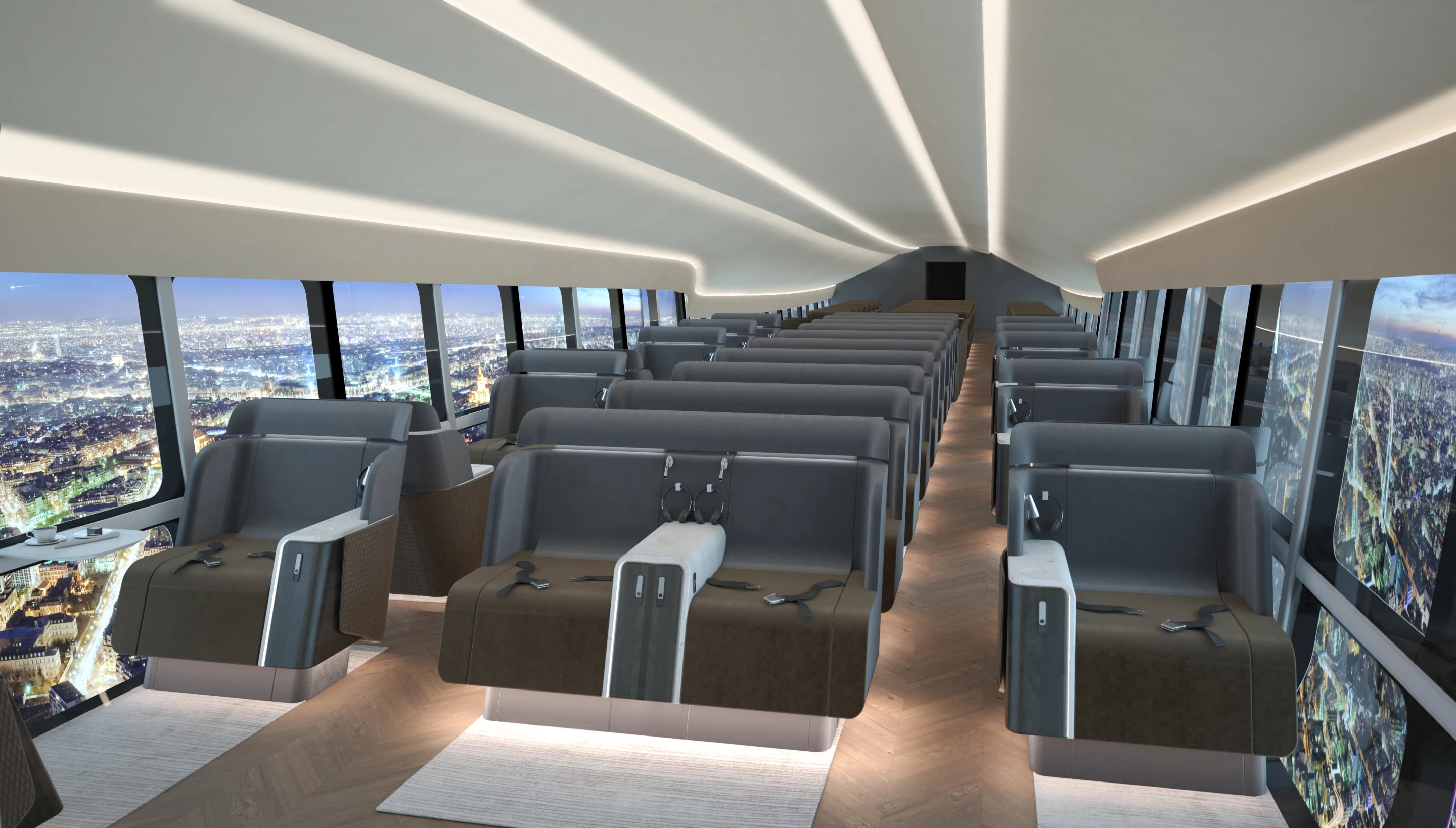The last time we checked in with the UK's Hybrid Air Vehicles, the company had just confirmed that its Airlander 10 airship would fly with both diesel engines and electric motors. With production planned to start this year, a new agreement with the Air Nostrum Group has been inked for the supply of a small fleet of 100-seat airships to fly on Spanish routes.
The bi-hulled, helium-filled airship is rated to carry a total payload of 10 tonnes and in mobility configuration can be had with a 72-person cabin or one that seats 100.
The Airlander 10 pre-production prototype currently cruises using four combustion engines burning jet fuel, but by 2025 Hybrid Air Vehicles (HAV) is planning to run a hybrid-electric configuration that would give a range of 750 km (466 miles) – or 350 km (217 miles) in electric only – while reducing emissions by some 90 percent compared to "other aircraft in mobility and logistics applications."
The company also has zero emissions flight in its sights and is planning to go all-electric by 2030, when it's expected that the Airlander 10 will become "the world's fist large-scale aircraft to achieve zero-emissions flight."

Following six months of in-house research into the viability of adding the Airlander 10 to its existing aircraft fleet on Spanish domestic aviation routes, the Air Nostrum Group has now entered into a reservation agreement for 10 of the 100-seat versions of the Airlander 10 aircraft for delivery in 2026.
"We are exploring each and every possible way to reduce our carbon footprint," said Air Nostrum's president, Carlos Bertomeu. "This is something that we have been doing for many years. The Airlander 10 will drastically reduce emissions and for that reason we have made this agreement with HAV."
Production of Airlander 10 airships is expected to start later this year at a new facility within a green aerospace manufacturing cluster in the South Yorkshire area of the UK.
Source: HAV








